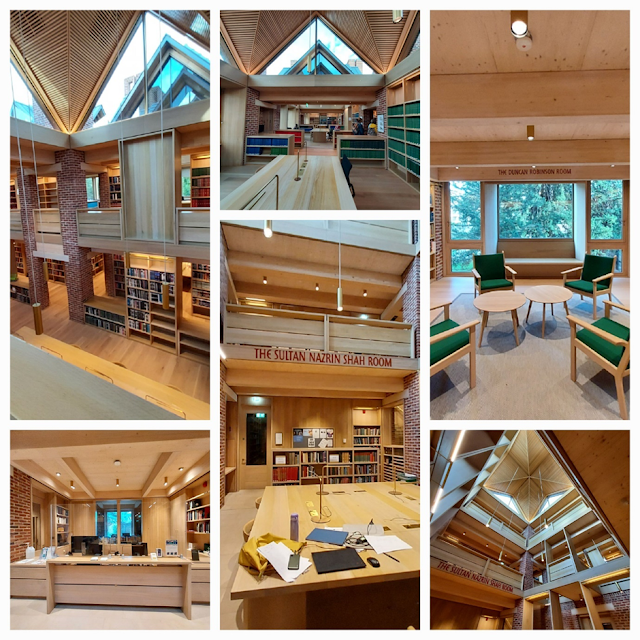Wednesday 8th March - 6pm
This month we hosted an online event which was a comprehensive, interesting and at some points hilarious talk by a former colleague, Clemens Gresser. Clemens left his most recent post as Librarian at the Divinity Faculty, University of Cambridge to become Heythorp Librarian at the London Jesuit Centre, based in Mayfair.
Throughout his talk Clemens interspersed 7 Pathways to Theology Librarianship – having asked colleagues how they ended up working in Theology Libraries. This was a great idea – we are all nosy about how people got their jobs, whether they had (or needed) a subject background, and we heard through anonymised questions about those whose career in libraries was definitely heading in that direction and those who just “fell into it!” This was a great idea to include in a talk, especially pertinent to graduate trainees and early career professionals.
The talk covered areas unfamiliar to most of the audience –the difference between Theology and Religious Studies; the importance and proliferation of biblical commentaries, and that apocryphal texts (the Gospel of Peter is actually a thing – Gospels are not limited to the “Fab Four” Matthew, Mark, Luke & John!). He suggested that as a subject librarian, you don’t need to know everything, you just need to know an academic with expertise in the field.
We were told about the huge volume of publications in the Biblical Studies field and the need to exercise caution and not spend all of the library budget on Biblical Studies texts – for example a whole book can be devoted to just a couple of verses of scripture. We looked at classification schemes, some of which were conceived when religion meant Christian Theology with “Other Religions” appearing as add-ons or afterthoughts. He illustrated this with an example from the Cambridge University Divinity Library where Islam was in a category called “None of the Above” –there was no meaningful way to browse the shelves for books on Islam. The Classification scheme for that library was amended after 2015 to include separate classmarks for Islam, Buddhism, Hinduism etc.
We moved on to thinking about Black theology, and post-colonial theology – a timely discussion as the “user-base” of practicing Christians is increasing in Africa, Asia and Latin America, and the same time as seeing a decline in Europe and North America.
There were a good few anecdotes as well. We heard that St Jerome is recognised by the Catholic Church as the patron saint of translators, librarians, and encyclopaedists, and that he translated many biblical texts into Latin from Hebrew, Aramaic, and Greek. We also found out there is a colouring book for librarians as well (have since Googled “Librarian Colouring book” – who knew there was such a selection on a well-known online retailer’s site!)
Clemens rounded off his talk with some photos of the Heythorp Library (which covers 4 sites, including a storage site and a site at an Oxford College) and there followed a few questions from the audience. Many thanks to Clemens for an entertaining and informative evening.
Post contributed by Helen Snelling - Membership Secretary


